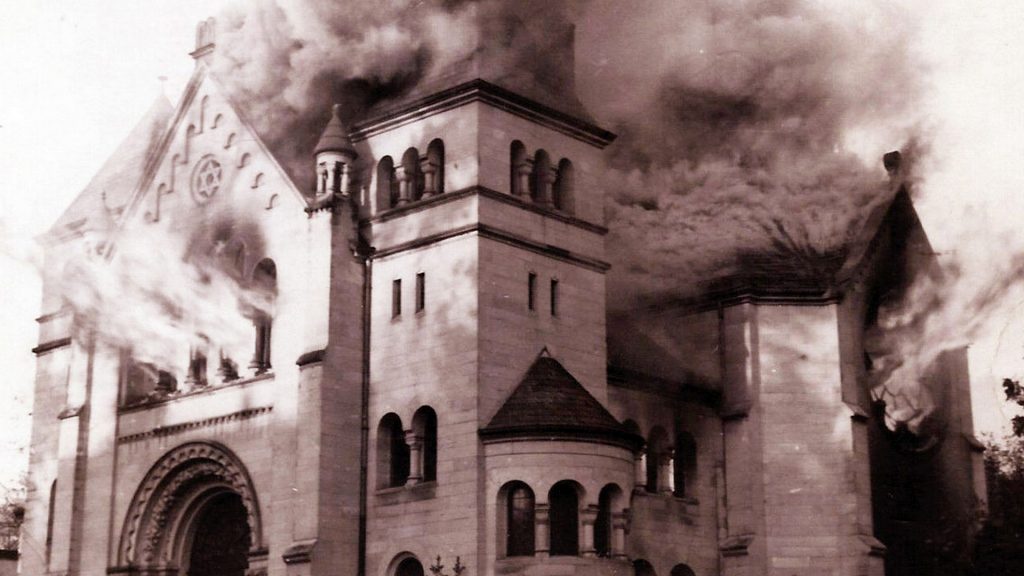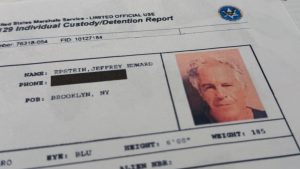‘The Night of Broken Glass’: Survivors recall Kristallnacht, 87 years later

On the night of Nov. 9, 1938, shattered glass littered the streets of Germany and Austria. Synagogues burned, Jewish-owned shops were looted, and terrified families hid in their homes as Nazi mobs rampaged through their neighborhoods.
It became known as Kristallnacht — the Night of Broken Glass — a coordinated attack that marked the beginning of the Holocaust and the Nazi regime’s official declaration of war on its own Jewish citizens.
More than 80 years later, survivors Paul Alexander, Walter Bingham and George Shefi remember that night as if it were yesterday — a night that changed the course of their lives and the lives of millions.
“It was because of Kristallnacht and what happened that the Jewish people in England decided they must save Jewish families from Germany and get them out as quickly as possible,” said Paul Alexander, who was just a boy when the violence erupted, in an interview with The Associated Press.
That call for rescue led to Kindertransport, a British-led humanitarian mission that brought nearly 10,000 Jewish children to safety between 1938 and 1939. Alexander was one of them. He left Germany soon after Kristallnacht.
A night of terror
The attacks began after a young Jewish man, Herschel Grynszpan, assassinated a German diplomat in Paris. Nazi leaders seized on the event to unleash a wave of violence across the Third Reich.
Over two days, Nov. 9 and 10 1938, at least 91 Jews were killed. More than 7,500 Jewish businesses were looted or destroyed. Roughly 1,400 synagogues were set ablaze, some reduced to ashes while firefighters stood by under orders not to intervene unless neighboring “Aryan” buildings were threatened.
Approximately 30,000 Jewish men were arrested and sent to concentration camps such as Dachau and Buchenwald. Many never returned.
Witness to the aftermath
Walter Bingham, who was 14 at the time, remembers walking to school the next morning through streets littered with glass, ash and smoke.
“As I neared the synagogue, I saw there lots of people,” Bingham recalled. “The synagogue was smoldering — the fire had started in the small hours of the morning, and by then it was reduced to a smoldering mess.”
Bingham ran home in fear. His father had already been deported to Poland.
“I went back quite shaken,” he said softly. “My father had already been deported early on to Poland, and I never saw him again.”
A Mother’s Goodbye
George Shefi’s memories of that time are both tender and heartbreaking. His mother, sensing the danger, told her young son he would be leaving Germany the next morning.
“My mother said to me, ‘Tomorrow you’re going to go by train, by ship, to see another country — very beautiful, wonderful,’” Shefi said. “She told me to make a list of toys I wanted to take, but she packed my clothes instead. There was no room for toys.”
Shefi was also rescued by the Kindertransport. Like many children, he never saw his parents again.
Remembering and warning
For these three men — now in their 90s and 100s — the memories of Kristallnacht are not just personal history. They see themselves as witnesses with a duty to speak out, to ensure that the lessons of that night are never forgotten.
“We decided, the three of us, unanimously, that we must do it,” Alexander said. “It’s important for us to do everything in our power to ensure there will be no repeat — neither of Kristallnacht nor of Oct. 7.”
For Alexander, Bingham, and Shefi, remembrance is both a tribute and a call to action — a reminder that history, if ignored, can repeat itself.
“We lived through it once,” Bingham said. “It must never happen again.”
The post ‘The Night of Broken Glass’: Survivors recall Kristallnacht, 87 years later appeared first on Straight Arrow News.





